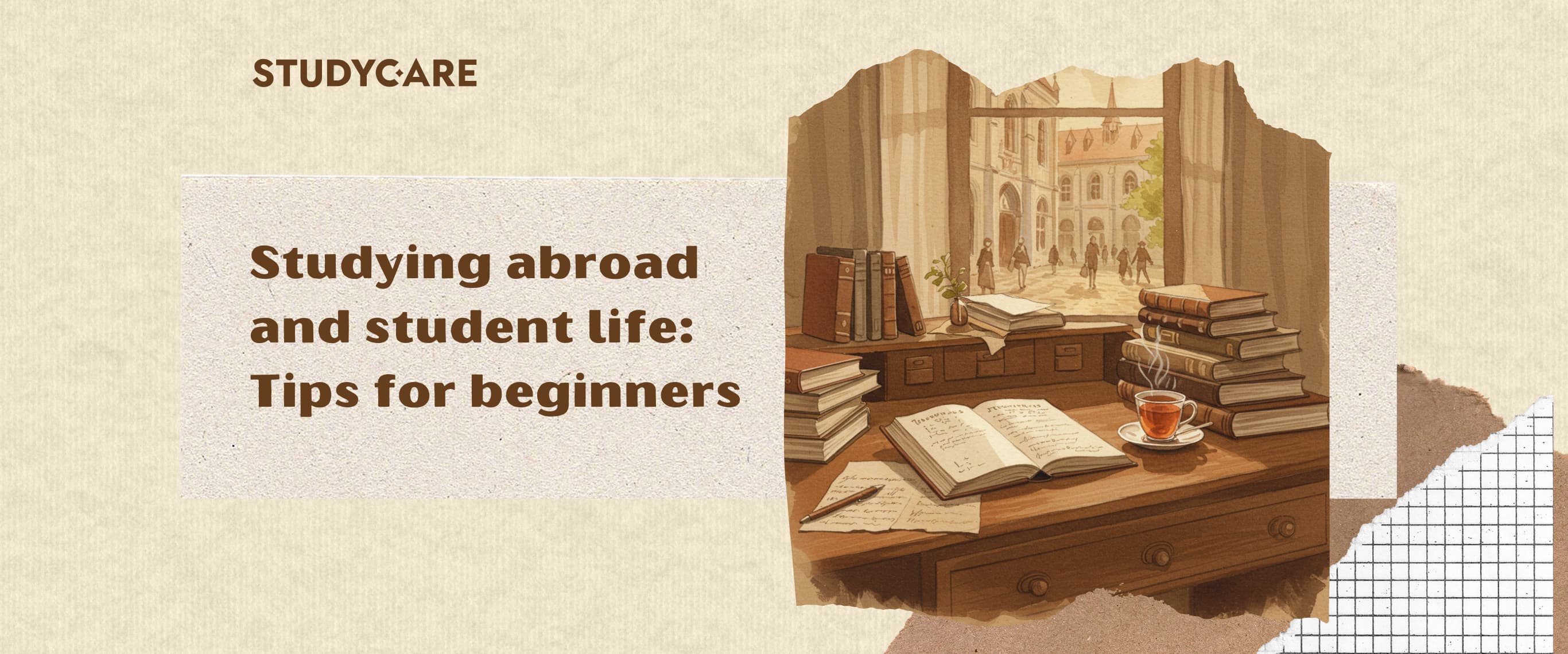Study Abroad
8 min read
Studying Abroad and Student Life: Tips for Beginners
21.03.2025

Studying abroad offers a unique opportunity to experience life from a completely new perspective. However, adapting to a new country and culture can sometimes be challenging. In this article, we’ll share practical tips to help students who are just beginning their study abroad journey adapt more easily.
1. Choosing Accommodation: The Right Place Makes Life Easier
One of the most important steps in student life abroad is choosing the right accommodation. Staying in a university dorm or a student house close to campus can help you adapt to social life more quickly and make it easier to attend classes. If you’re planning to rent a private apartment, consider the following criteria:
Safety: Research whether the area you’ll live in is safe.
Transportation: Check the proximity to your university and public transport stops.
Cost: Evaluate options that fit your budget.
2. Financial Management and Budget Planning
Financial management is crucial for students studying abroad. To manage your expenses effectively, follow these steps:
Plan Your Income and Expenses: Identify your sources of income such as scholarships, family support, or part-time jobs, and keep track of your spending.
Set a Monthly Budget: Plan for rent, food, transportation, stationery, and social expenses to avoid unnecessary costs.
Take Advantage of Student Discounts: Use student discounts on public transport, restaurants, and cultural events to make the most of your budget.
3. Improve Your Language Skills
Before studying abroad, learning basic expressions in the official language of the country provides a major advantage. If your education will be in English, you can prepare for international exams like IELTS or TOEFL to prove your proficiency. For smoother communication in daily life:
Try speaking with locals.
Join language courses.
Watch movies and TV shows in the original language for practice.
This will help you communicate more comfortably both in class and in everyday situations.
4. Health Insurance and Medical Services
Having health insurance may be mandatory while studying abroad. To benefit from health services smoothly:
Research health insurance options tailored for students.
Learn about the healthcare system in your host country.
Save contact details of hospitals and doctors you can reach out to in emergencies.
These steps will help you find quick solutions in case of health issues.
5. Adapting to Social Life and Networking
Studying abroad is a great opportunity to discover different cultures and build international friendships. To speed up your adaptation process, consider the following:
Join student clubs at your university.
Participate in international student events.
Attend cultural activities to gain new experiences.
Making new friends helps expand your social circle and makes it easier to adapt to the country.
1. What are the first few days like after moving abroad?
You may feel a sense of unfamiliarity at first, but with prior research and social interaction, the transition becomes easier. Be open to cultural differences and stay patient.
2. What kinds of social activities are there abroad?
Universities offer various activities such as cultural events, sports clubs, volunteer projects, and artistic activities. Joining them is a great way to meet new people.
3. How can I communicate with other students abroad?
You can join international student events, participate in group projects, or connect with other students through social media groups.
Being a student abroad is a great opportunity for both academic and personal growth. To make the most of this experience, plan your accommodation carefully, manage your finances wisely, improve your language skills, and expand your social network. Remember, every new beginning brings new adventures and learning opportunities!
If you’d like to receive more information and benefit from our study abroad consulting services, feel free to contact us
Tools and strategies modern educators need to help students grow